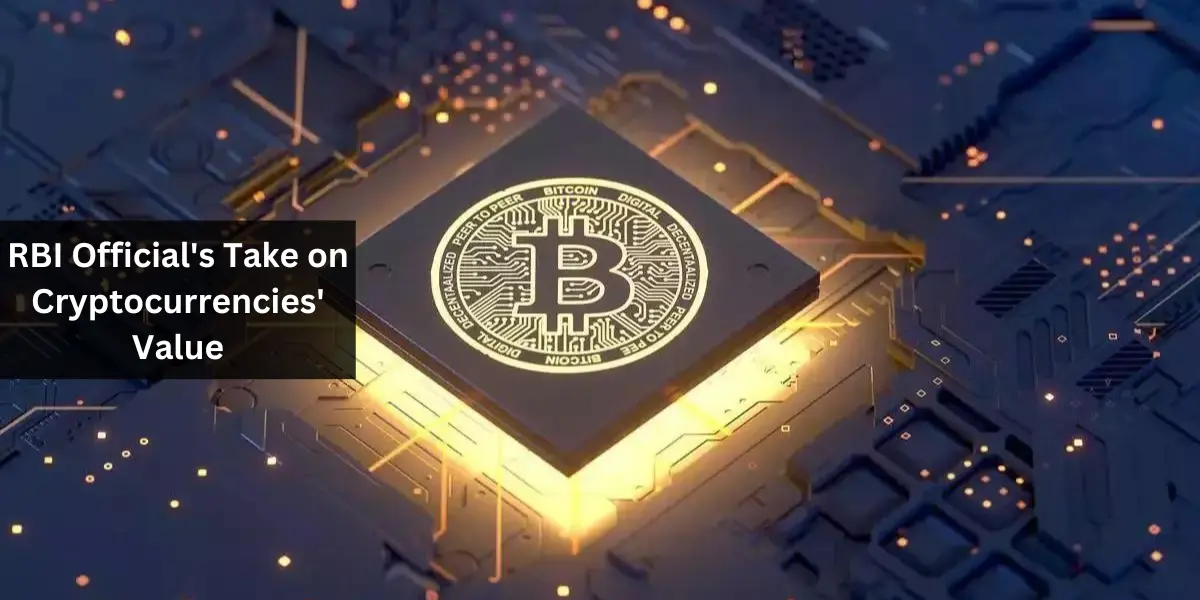In a global where digital currencies have become as conversational because the climate, a latest declaration with the aid of an RBI (Reserve Bank of India) legitimate has sparked a flurry of discussions throughout financial boards and coffee tables alike. The authentic remarked, “Cryptocurrencies don’t have any underlying price,” a assertion that, whilst no longer new, reignites the debate at the intrinsic really worth of virtual currencies like Bitcoin, Ethereum, and their myriad brethren. Let’s unpack this statement, discover its implications, and navigate the choppy waters of cryptocurrency valuation.
Understanding the Assertion
The RBI’s Stance
The Reserve Bank of India, the country’s imperative banking group, has historically maintained a careful stance on cryptocurrencies. The reliable’s declaration underscores an extended-status skepticism approximately the steadiness and reliability of digital currencies, which, unlike fiat currencies, aren’t backed by means of any physical commodity or authorities decree.
The Nature of Cryptocurrency
Cryptocurrencies operate on blockchain generation, a decentralized ledger that facts all transactions throughout a community of computer systems. The absence of central authority or bodily backing is each their energy and the crux of the RBI’s situation.
The Value Debate: Perception vs. Reality
What Determines Value?
In the conventional experience, the price of a foreign money or asset is regularly tied to its physical attributes, government backing, or its utility in obtaining items and offerings. Cryptocurrencies undertaking this notion via deriving cost from consensus and consider within the era that underpins them.
A Matter of Trust
The essence of the controversy boils right down to trust. Proponents argue that cryptocurrencies provide a transparent, steady, and efficient manner of accomplishing transactions, loose from the manage of any significant authority. This agree with in the device, they assert, is what imbues cryptocurrencies with fee.
The Volatility Question
A Roller Coaster Ride
Cryptocurrencies are infamous for their volatility. Prices can skyrocket or plummet based totally on market sentiment, regulatory news, or technological advancements. This instability is frequently mentioned with the aid of critics just like the RBI as proof of cryptocurrencies’ unreliable fee.
Risk vs. Reward
For buyers and lovers, the volatility of cryptocurrencies is part of their charm, imparting the capability for high returns. However, it additionally underscores the chance involved, highlighting the speculative nature of making an investment in virtual currencies.
Comparing Cryptocurrencies and Traditional Assets
Gold and Government Bonds
Critics of cryptocurrencies often evaluate them to traditional assets like gold or government bonds, that have tangible fee or authorities backing. These assets serve as a hedge against inflation and monetary uncertainty, roles that cryptocurrencies are vying to fill.
The Digital Gold Argument
Supporters of cryptocurrencies argue that digital currencies, especially Bitcoin, can act as “virtual gold,” offering a brand new shape of value storage this is independent of traditional monetary structures and geopolitical impacts.
The Regulatory Landscape
Navigating Choppy Waters
The regulatory surroundings for cryptocurrencies varies notably throughout the globe. Some nations embody them, whilst others, like India, technique them with warning. This regulatory uncertainty provides every other layer of complexity to the valuation debate.
The Call for Clarity
Both critics and proponents of cryptocurrencies agree on one component: the need for clean, regular regulation. A solid regulatory framework should assist stabilize the market, guard traders, and probably deal with worries approximately the underlying value.
The Future of Cryptocurrencies
Innovation and Adoption
Despite skepticism from institutions just like the RBI, the adoption of cryptocurrencies maintains to develop, driven by means of technological advancements, growing mainstream acceptance, and the upward thrust of decentralized finance (DeFi) structures.
The Evolving Debate
As the ecosystem evolves, so too will the controversy at the underlying fee of cryptocurrencies. With every advancement, the communication shifts from a query of if cryptocurrencies have fee to how we outline and recognize that cost.
Conclusion
The RBI reputable’s declaration on the lack of underlying price in cryptocurrencies reopens a complicated debate that touches on economics, technology, and philosophy. While opinions diverge, the ongoing discussion reflects the dynamic and evolving nature of digital currencies in modern day economic landscape. As we move ahead, the adventure of cryptocurrencies from area of interest to mainstream will likely hold to task our traditional notions of value, funding, and financial sovereignty.
FAQs
Why does the RBI caution in opposition to investing in cryptocurrencies?
The RBI cautions in opposition to cryptocurrencies because of issues over volatility, lack of regulatory oversight, and ability dangers to economic balance.
Can cryptocurrencies act as a hedge in opposition to inflation?
Some buyers believe cryptocurrencies, mainly Bitcoin, can act as a hedge towards inflation, much like gold. However, this view isn’t universally well-known because of their volatility.
What makes cryptocurrencies valuable?
Cryptocurrencies derive their fee from the trust and consensus of their customers in the era and the restrained deliver of coins, among other factors.
How do rules have an effect on the fee of cryptocurrencies?
Regulatory movements can appreciably effect the price of cryptocurrencies, with fantastic regulations doubtlessly boosting consider and price, at the same time as restrictive guidelines can lead to decreases in rate.
Will cryptocurrencies update conventional currencies?
While it’s unlikely that cryptocurrencies will replace conventional currencies totally within the close to future, they’re turning into an more and more essential part of the global financial atmosphere, imparting an alternative to standard forms of money and payment structures.

